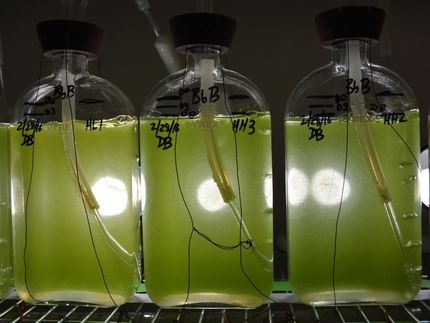Light Biology, a biotech company based on UT Southwestern technology, bought by NimbleGen Systems
Advertisement
DALLAS - Light biology Inc., a startup biotech company based on technology developed at UT Southwestern Medical Center at Dallas, has been acquired by NimbleGen Systems Inc. of Madison, Wis.
Light Biology was formed in the late 1990s, to commercialize technology developed by Dr. Harold "Skip" Garner, professor of biochemistry and internal medicine at UT Southwestern. Using methods similar to those used for manufacturing semiconductors, Dr. Garner invented a new way to make DNA microarrays, which are used in scientific research to analyze the structure and function of genes at the molecular level.
The system, called Digital Optical Chemistry (DOC), uses Texas Instruments Digital Light Processing technology - instead of traditional film processing - to manufacture specialized DNA microarrays more quickly and cost effectively than previously possible. With the acquisition, NimbleGen will now own all of Light Biology's assets and patent rights to the DOC technology.
"We're delighted to see this breakthrough technology partnered with NimbleGen. This deal represents the successful collaboration among several parties," said Dr. Dennis Stone, vice president for technology development at UT Southwestern.
Dr. Garner said, "These microarrays can monitor levels of every gene of an organism that is expressed in a disease. And the technology can make the microarrays quicker and more cost-effective, furthering biomedical research. We have a strong collection of ways in which this technology can be applied to cutting-edge scientific research."
The enormous size of the human genome necessitates this careful target selection to tune experiments to address specific questions, Dr. Garner added. A need has emerged to have rapidly customizable microarrays, making the DOC technology a valuable research tool.
Dr. Garner's DOC technology and NimbleGen's Maskless Array Synthesis (MAS) technology will now give scientists who use DNA microarrays the ability to customize the analysis of hundreds of thousands of small segments of genetic material in a matter of hours. Traditional microarrays often do not allow customized analysis of different genetic material and are costly for researchers to purchase.
"A scientist can say they want to study an organism whose genome was just sequenced," Dr. Garner said. "We can begin making a microarray immediately and in about eight hours have it ready for the experiment."
As part of the acquisition agreement, Dr. Garner will join NimbleGen's Scientific Advisory Board.
"We had a strong core technology and other enabling technologies such as the automated DNA synthesis," said Dr. Joe Allred, director of venture development at UT Southwestern. "It was a compelling venture project for the medical center. So we looked for an outside partner to work with us to develop a value proposition and form the start-up company."
Richardson-based STARTech Early Ventures established Light Biology Inc. in 2001, based on an agreement with UT Southwestern to commercialize Dr. Garner's DOC technology. After developing the business plans and negotiating with potential partners over a period of time, it was decided that the right strategic move was to combine with another company that was more advanced in its commercial development.
"We wanted to see Light Biology become a manufacturing and marketing operation in Dallas," said Matt Blanton, chief executive officer of STARTech (http://www.startechev.com/). "It eventually became clear that to succeed in this complex market required partnering with companies having complimentary strengths."
Dr. Allred said, "NimbleGen had entered the market four years earlier and established a strong leadership position. Merging the two gives the company clear superiority, making it the right choice for both companies."
The deal strengthens NimbleGen's patent portfolio surrounding the synthesis of DNA. With the acquisition of Light Biology and its intellectual property, NimbleGen says it will be able to enhance its operations in the United States.





























































